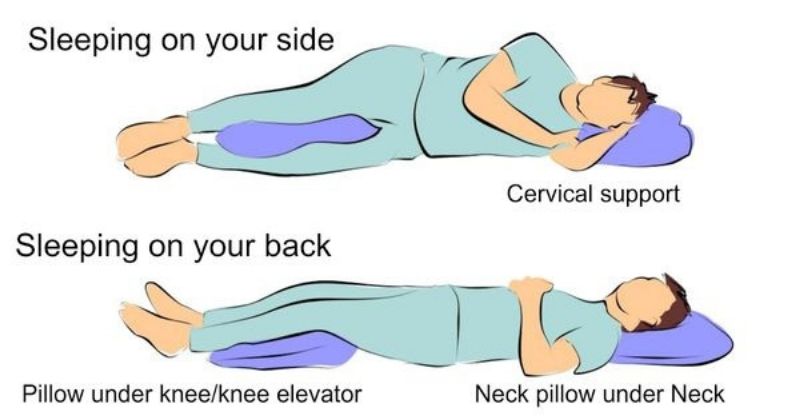
Getting a good night’s sleep is essential for our health and well-being. As we age, maintaining proper sleep habits becomes even more crucial. In this article, we’ll explore twelve bedtime habits that should be avoided to ensure you get a peaceful and restorative sleep.
1. Keep Your Feet Warm
Going to bed with cold feet can disrupt your sleep. To improve comfort, consider warming your feet before bed using warm socks or a heated blanket. This simple action can help signal to your body that it’s time to sleep.
2. Establish a Bedtime Routine
A consistent bedtime routine signals to your brain that it’s time to wind down. Engaging in relaxing activities like brushing your teeth, washing your face, and reading a soothing book can prepare your body and mind for rest. Creating a calming ritual helps establish healthy sleep patterns.
3. Limit Caffeine Intake
Caffeine, found in coffee and many other beverages, is a stimulant that can affect your sleep. It’s best to avoid consuming caffeine at least 4-6 hours before bedtime to prevent it from interfering with your ability to fall asleep.
4. Opt for the Right Sleeping Positions
Sleeping on your left side is recommended by experts as it may promote better digestion and circulation. However, everyone’s body is different, and it’s important to choose a sleeping position that is most comfortable for you.
5. Keep Electronics Away from the Bed
Bright screens from electronic devices like phones and tablets can interfere with your ability to fall asleep by inhibiting the production of melatonin, a hormone that regulates sleep. To promote a peaceful sleep, create a technology-free zone in your bedroom and avoid screens at least an hour before bed.
6. Choose the Right Reading Material
Reading before bed can be a relaxing way to wind down, but the type of material you choose matters. Avoid stimulating or suspenseful books that could keep you awake. Instead, opt for calming literature or a light, soothing read to help you transition into sleep.
7. Say No to Bright Alarm Clocks
Bright lights, including those from alarm clocks, can disrupt your sleep environment. If you’re sensitive to light, choose a clock with a dimmer or consider other alarm methods that won’t interfere with your rest.
8. Avoid Drinking Fluids Close to Bedtime
Drinking large amounts of fluids right before bed can result in frequent trips to the bathroom during the night, disrupting your sleep. Limit your fluid intake at least an hour before bed to ensure uninterrupted rest.
9. Afternoon Naps – Proceed with Caution
While an afternoon nap can be refreshing, napping too late or for extended periods can interfere with your nighttime sleep schedule. If you must nap, aim for a short, 20-30 minute rest earlier in the day to avoid disturbing your sleep at night.
10. Invest in a Quality Mattress
A comfortable and supportive mattress plays a crucial role in ensuring a restful night’s sleep. It’s essential to invest in a mattress that suits your personal preferences and provides proper support for your body.
11. Avoid Eating Close to Bedtime
Eating a heavy meal or snack right before bed can cause discomfort and prevent you from falling asleep quickly. It’s best to eat at least two hours before bed to give your body time to digest and avoid any digestive disturbances that could affect sleep.
12. Skip Intense Exercise Before Bed
Exercising vigorously close to bedtime can make it harder to wind down, as it stimulates your body and raises adrenaline levels. It’s advisable to avoid intense exercise at least three hours before sleep. However, light stretching or yoga can be beneficial for relaxation.
Conclusion:
By avoiding these twelve bedtime habits, you can significantly improve your sleep quality and wake up feeling rested and energized. While some recommendations may work better for certain individuals, maintaining a consistent and calming sleep routine, avoiding disruptive habits, and investing in a comfortable sleep environment are essential for getting the best rest possible. Prioritize your sleep, as it is a vital part of maintaining your overall health and well-being.







